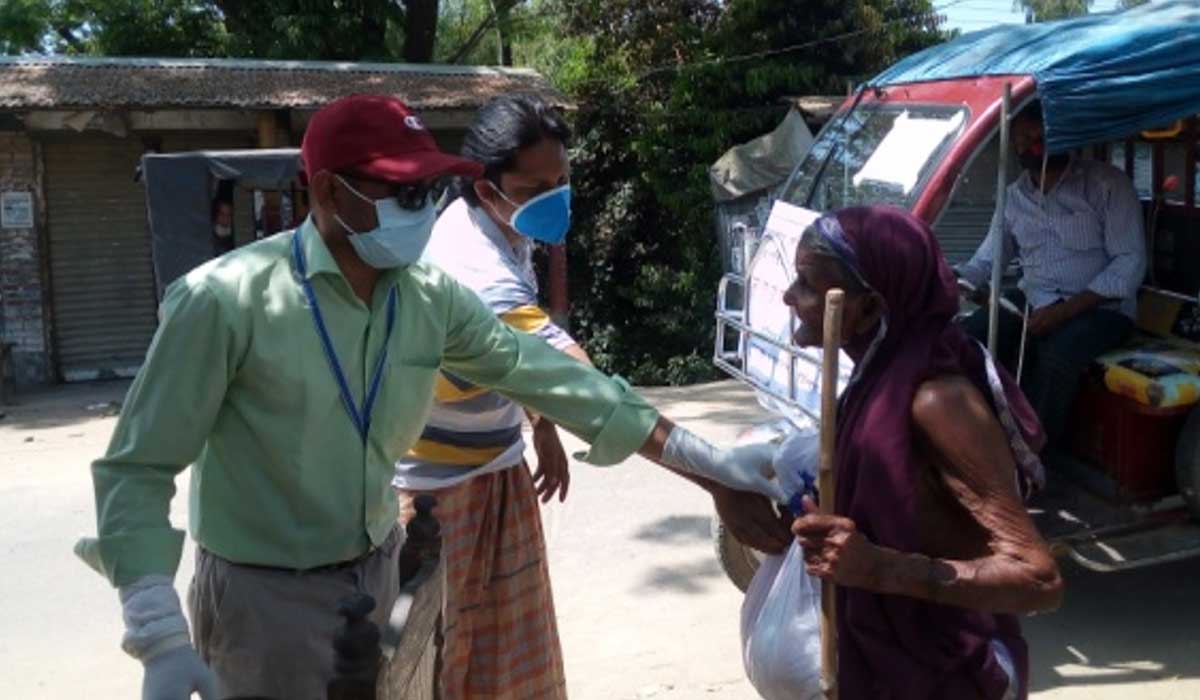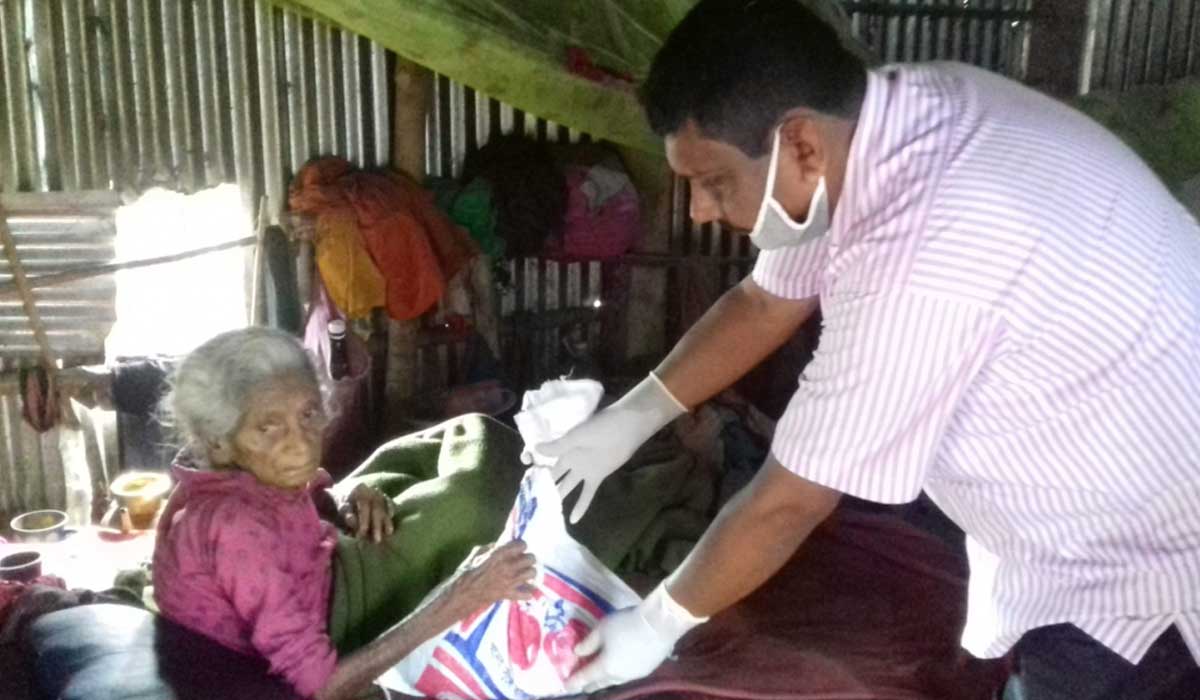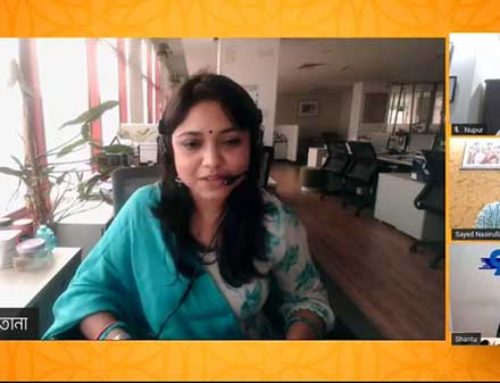Introduction of Bangladesh Nari Progati Sangha (BNPS)
BNPS is a non-government organization has been working since 1986 on realizing rights of the marginalized focusing on vulnerable girls and women, ethnic and religious minorities and other excluded communities. The organization is registered with the Directorate of Women Affairs (Registration No. MBP-465/86 Dated 24.06.86) and NGO Affairs Bureau of Government of Bangladesh (Registration No. 271; Date: 29.09.1988 and renewed on 29.09.2018 until 28.09.2028.
BNPS’s vision, mission, program structure, approach, policies and all the procedures are geared towards women rights and its programs history confirm its philosophy towards a just society where women and girls exercise their rights as like as men and boys. BNPS follows a bottom-up and right-based approach in its operation linking community based organized efforts with central level initiative for reformation in respective areas.
BNPS works on to create a supportive environment for women, minority and other marginalized groups to raise their voices and claim entitlements through development education, institution building, livelihood and reforms of policies, systems, institutions and mindset of relevant stakeholders.
BNPS have been working on the above issues through implementing 12 projects and programs in Dhaka, Netrakona, Mymensingh, Gazipur, Narshingdi, Kishoreganj, Hobiganj, Chattogram,Sandwip, Bandarban, Rangamati and Khagrachari districts. BNPS currently working with over 200,000 women and 1,000,000 people have been benefitting from different interventions.
Major focus of BNPS is social, economic and political empowerment of women, gender equality, strengthening of local government, electoral reform, education reform, gender budget analysis and many challenging issues like inheritance laws, women representation in power structure i.e. parliament and local government bodies, sexual and reproductive health and rights (SRHR), prevention of violent extremism (PVE), issues of women workers and violence against women and girls (VAW/G).
BNPS is always active to responding to any national calamities, worked with flood and cyclone affected people, constructed cyclone center, helped people during drought and early flood in Haor areas, DRR in coastal belt and currently engaged with COVID 19 response.
BNPS is actively involved with various national, regional and international network/alliances.
BNPS’s programmatic inventions in response to the crisis of COVID-19

Relief distribution at Mohonganj (Haor)
BNPS formed a central level committee involving senior management team headed by the Executive Director to analyse the situation and take lead to work hand in hand in coordination with the local government, district and upazila authorities, BNPS field offices, NGOs, local doctors and community leaders. The organization has provided orientation to the staff, volunteers and youth group members on COVID 19 pandemic, preventive measures, social responsibilities and personal safety.

Relief distribution at Netrokona
BNPS using its own fund to work with the program stakeholders (at villages, Hill tracks and urban slums) volunteers and partner NGOs in Dhaka, Netrakona, Mymenshing, Narshingdi, Gazipur, Kishoreganj, Chattogram, Sandwip,Bandarban, Rangamati and Khagrachari districts to respond the pandemic crisis. The organisation has been supporting 30, 250 families over 150,000 population. In addition BNPS encouraging village and slum level group members to get access to government resources so that there is available support services for them.
BNPS has been implementing the following activities:
- Distributing leaflets those are developed by the government health department among the literate people.
- As so many villagers, people at the hill tracks and slum dwellers cannot read the leaflets and the information to the women reach late so that using loudspeaker to announce the preventive measures.
- Promoting awareness not to take bath themselves and bring their cattle for bathing at the pond and river to protect water from contamination. Rather people can take water from those places using jar for household works and bathing,
- The organization has been distributing soap, mask, hand sanitizer and food items among the poor and extreme poor prioritizing women headed household, persons with disabilities and ethnic minorities. To avoid mass gathering, BNPS staff deliver items at the door steps of the listed people.
- Volunteers have been raising awareness among the returnee migrant workers to stay at home for fourteen days quarantine. If someone does not follow the suggestion they inform the locally elected union parishad members to get their assistance.
- BNPS youth groups are engaged with distribution of food and nonfood items, awareness raising and liaising with the local government to enlist poor people for the state support.
In addition, BNPS team collect information from national and international sources about COVID 19, its nature, how it spreads and suggestions of the experts and share with own staff, partner NGOs, Networks and social media.
Future outlook and recommendations:
Lessons learnt: Home delivery of food supplies is limited at the district and Upazila HQs, not reaching the villages. Women headed poor households and persons with disabilities are in difficult situation. There is lack of coordination and cooperation among the NGOs and with the government departments at the district and Upazilla level. Gathering of people at village markets (Haats) have been noticed. The government instructed to organize Haats at the school field but until now no steps have been observed from any agencies to work with Haat committees to implement the directives.
Future challenges & recommendations:
- A quick research is necessary to understand the depth of impact on people’s behavior pattern, social and economic vulnerability caused by the lock down situation. This is necessary for designing need based rehabilitation programs.
- There is no decision from the government on the type of rehabilitation support will be provided to the extreme poor and day laborers. Otherwise, these people could be excluded from the government support. Will there be more VGD/VGF card, cash support to small shops owners?
- Subsidy to fertilizer and distribution of seeds, loan with low interest rate if appropriately implemented will benefit the people having land (Middle class or upper middle class) but the poor landless people or having a small piece of land might not benefit from this initiatives.
- There is need of forming ward level committees with civil society representatives, elected UP members, school teachers to maintain transparency in government and NGO programs relating to COVID 19.






